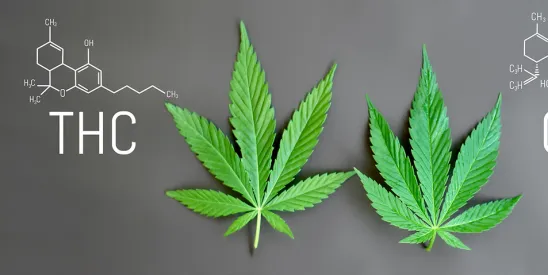The cannabis industry has undergone a rapid transformation over the past decade, spurred by evolving federal and state legislation. Yet, beneath the promise of legalization and medical innovation lies a growing public safety and misinformation crisis—rooted in testing fraud, labeling inaccuracies, and potency inflation. This article explores the darker undercurrents of the cannabis marketplace, examining how systemic deficiencies in testing, regulation, and enforcement are leading to consumer harm, lawsuits, and a breach of public trust.
Conditioned to believe THC potency correlates with quality and efficacy, many consumers gravitate towards products that purportedly have higher levels of THC. When faced with an array of choices, labels, numbers, and strain names, a flower or pre-roll customer will likely pick the item with the higher THC potency even if just by one or two percent. But if the product is mislabeled and instead of the advertised 42% THC pre-roll it is actually 25%, the consumer is dupped into buying a product he may not have otherwise bought. This not only stifles fair competition – based on true product quality, attention to detail, grow/processing methods, source ingredients, and genetics – but also puts the consumer at a disadvantage in not being able to fully trust labels and the lab reporting they are based on.
The Testing Crisis: Lab Shopping and Potency Inflation
Laboratory testing is the linchpin of cannabis product safety and consumer trust. Yet, despite stringent testing regulations and requirements, the practice of lab shopping—where producers seek laboratories that provide favorable results—has become pervasive and widespread. The biggest motivators that result in lab shopping are potency inflation (to sell at a higher price) and passing contaminated products (to not have to destroy products). Some microbial methods that are used to test cannabis do not recover common molds like botrytis (aka bud rot), leading to extreme under-reporting of mold and yeast.
For example, a recent NBC10 Boston news report highlighted these issues in Massachusetts where off-the-shelf marijuana sold at licensed dispensaries had elevated levels of mold and fungi. See https://www.youtube.com/watch?v=DsiD_1aXj0g. While the risks are low for most healthy consumers who purchase contaminated flower, for those who are immunocompromised mold exposure can lead to serious lung infections, systemic illness, and even hospitalizations. The owner of ProVerde Labs has warned the Massachusetts Cannabis Control Commission for years about these issues with little movement and says more oversight and off-the-shelf testing is needed.
Inaccurate labeling can lead to misdosing, unexpected effects, and potentially more serious health concerns. Prolonged exposure to heightened levels of mold, bacteria, and mycotoxins can lead to chronic health issues especially for immunocompromised individuals who are susceptible to fungal infections.
MJBizDaily highlights the probability that many of the products sold at licensed dispensaries in regulated states do not conform to applicable health and labeling laws. See https://mjbizdaily.com/colorado-cannabis-testing-experiment-yields-damning-pesticide-microbial-potency-results/. A frustrated manufacturer had flower and pre-rolls randomly purchased at local Denver area dispensaries tested for potency and contaminants by a state-regulated cannabis laboratory and the results were astounding:
- Only 2 of the 15 purchased products (13%) complied with state regulations
- Some products were found to have dangerous levels of contaminants
- 80% of products had THC content outside the 15% variance allowed under Colorado law
- Four of the 15 cannabis samples tested (27%) revealed the presence of coliform bacteria (essentially feces) above the state limit for industrial hemp, and one pre-roll was found to have 12,000 CFU (colony-forming units) per gram, 120 times the legal limit for hemp products
- One pre-roll sample was shown to have 780,000 CFU per gram, meaning it had 78 times the legal limit of viable microorganisms
- Potency levels printed on labels averaged 34.2% higher than what was discovered in the tests
Besides the obvious health issues associated with clearing marijuana products for sale that should fail for pesticides, yeast, mold and/or microbial contamination, unreliable potency tests create an unfair marketplace where consumers often make purchases based on high-THC claims that are unfounded.
At the end of January, a Massachusetts testing laboratory filed a lawsuit accusing a slew of competitor labs of “fraudulent” practices that have led to inflated THC potency and manipulation of safety results thereby causing potentially tainted and contaminated products to flood the market. See https://www.wbjournal.com/article/framingham-cannabis-testing-lab-sues-competitors-claiming-deceptive-practices-result-in. Combating “lab shopping,” plaintiff MCR Labs LLC called out eight labs for purposefully reporting inaccurate test results to cater to the whims of cultivators and manufacturers looking to boast high THC levels. MCR Labs alleged that its unscrupulous competitors stole clients and business from honest labs that diligently and faithfully report accurate test results.
MCR Labs claims that because all competing laboratories should follow accepted and reliable scientific testing methodologies customers should receive consistently similar results across the board. Therefore, the differentiators for labs competing for the same clients should be price points and customer service, and not a willingness to artificially inflate potency results, conceal found contaminants, and provide favorable rather than accurate test results.
This is happening everywhere. Towards the end of 2024, representatives from two of New York’s 16 licensed testing labs wrote a letter to the New York cannabis regulatory body, the Office of Cannabis Management (OCM), asserting serious problems with testing laboratories inflating THC potencies and reporting impossible cannabinoid profiles for vape cartridges. Recently, a study conducted in New Jersey revealed that pre-rolls purchased at licensed dispensaries contained high levels of mold, yeast, and contaminants as well as did not have the THC potency advertised. In two of the tested products, yeast and mold levels were five times higher than the allowable limit.
Lab testing fraud, skewed results, data manipulation, and false reporting for profit and market share is a widespread problem affecting nearly every legalized state and recreational market resulting in mislabeling, deception, and increased consumer safety risks.
Lawsuits and Injuries
Mislabeled products with overinflated THC and/or CBD potencies may spur lawsuits from competitors for unfair competition, deceptive practices, and false advertising. The Lanham Act provides a cause of action for anyone harmed by “any false or misleading description of fact” or misrepresentation of the quality of the marketed goods, however, given the intrastate nature of cannabis commerce, competitors and consumers may fail to satisfy the “interstate commerce” requirement, especially as it relates to strictly state-regulated THC products as opposed to federally legal hemp-derived products. See 15 U.S.C. § 1125(a)(1)(B); see also Warner-Lambert Co. v. BreathAsure, Inc., 204 F.3d 87, 91-92 (3d Cir. 2000). Nevertheless, many states, including New Jersey, New York, and Pennsylvania have state specific unfair competition, deceptive practices, and consumer protection laws that may be invoked.
In August 2023, the Missouri Division of Cannabis Regulation (the “DCR”) initiated a recall of products sold by Delta Extraction “due to a credible and imminent threat to public health or public safety” arising out of Delta’s use of out-of-state hemp derived THC-A, which it then converted to THC distillate that it used to infuse vape cartridges, gummies, and edibles. Missouri regulations like those of most regulated states prohibit licensed producers from using THC products, including hemp-derived THC-A, that were produced or sourced outside of the state’s regulated program.
In other lawsuits consumers have alleged Δ8 products they consumed contained more Δ9 than legally permissible. In February 2024, a Georgia consumer brought a class action against Cloud 9 Online Smoke & Vape and other sellers of Delta-8 vape pens alleging that their products contained an unlawful concentration of Delta-9 THC. See Ledbetter, et al. v. Cloud 9 Online Smoke & Vape, LLC, et al., Case No. 1:24-cv-00538 (N.D. Ga. 2024). A recent class action filed against popular cannabis brand Stiiizy Inc. in Illinois federal court is the second lawsuit involving Delta-8 THC and THC potency, and should put Δ8 THC manufacturers on alert for similar lawsuits. See Byron, et al. v. Stiiizy, Inc., Case No. 3:24-cv-1082 (S.D. Ill. 2024). The lawsuits assert consumer protection violations, negligent misrepresentation and fraud due to health and safety risks posed by cannabis products said to contain more Δ9 THC than the federal limit.
In California, Central Coast Agriculture faced a class-action lawsuit alleging that their cannabis products contained lower THC levels than advertised. The court, however, dismissed the case, citing insufficient evidence connecting the lab test results to the specific products purchased by the plaintiffs.
In the underbelly of cannabis manufacturing plants workers sometimes perform their daily tasks in less than favorable conditions, exposed to potentially harmful molds, dust, contaminants, and allergens. Following the unexpected death of a 27-year old cannabis employee who collapsed while rolling joints in cannabis manufacturing facility in Massachusetts, the family filed a wrongful death suit against the company. Other such lawsuits including a flurry of recent lawsuits alleging Neptune’s Resources manufactured and sold a product dubbed “gas-station heroin” it knew or should have known could cause serious injury and death. See https://feldmanshepherd.com/firm-news/feldman-shepherd-files-wrongful-death-lawsuit-against-maker-of-neptunes-fix-following-death-of-32-year-old/. Plaintiffs contend that Neptune’s Fix contained tianeptine, which has been linked to seizures, coma and death and the subject of various FDA and state health department public warnings and announcements.
Lawsuits are expensive and the potential for multi-million-dollar verdicts, judgments, and liability exposure, it would behoove cannabis operators, re-sellers, and dispensaries to have indemnity contracts with manufacturers, adequate and appropriate insurance, and legal stewardship.



 />i
/>i
